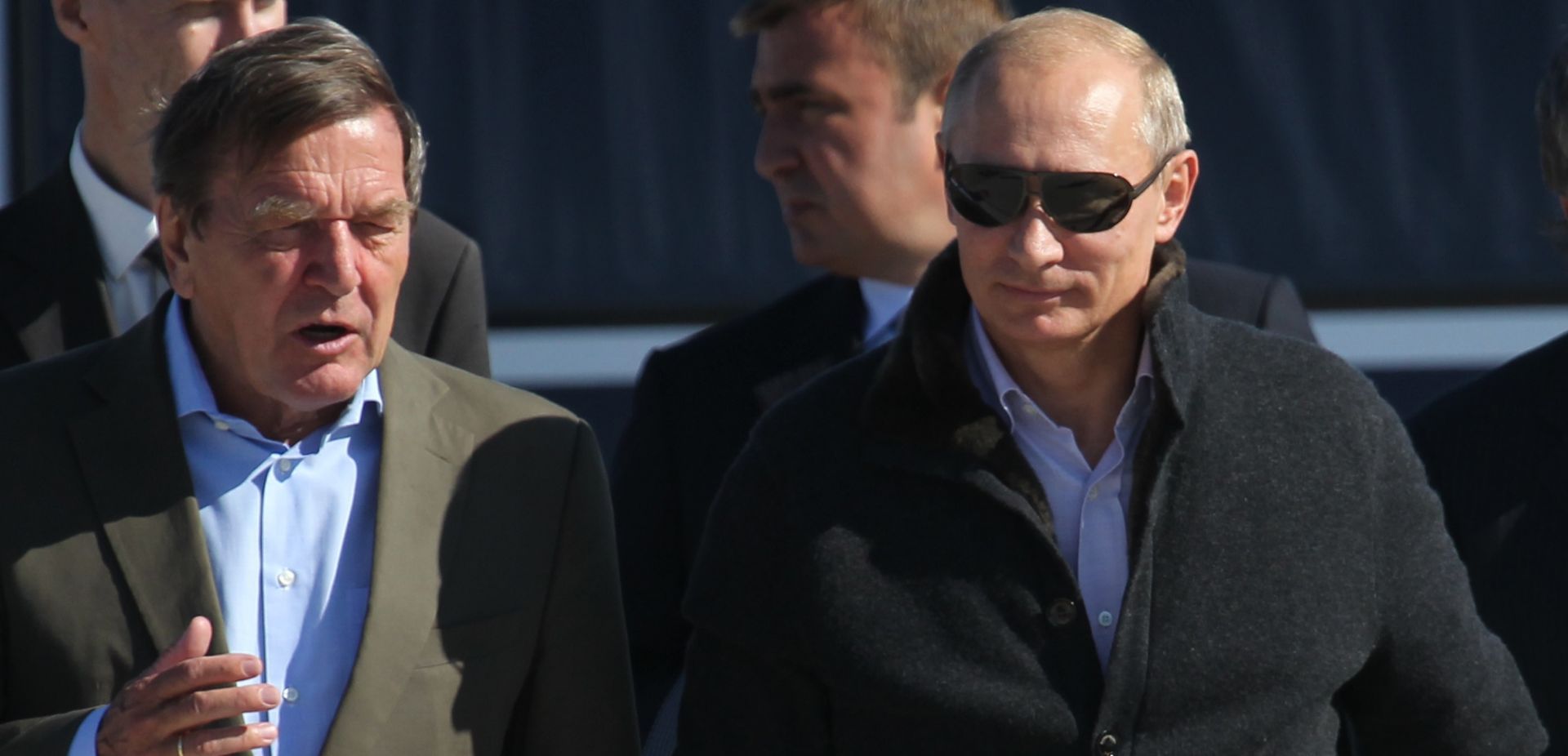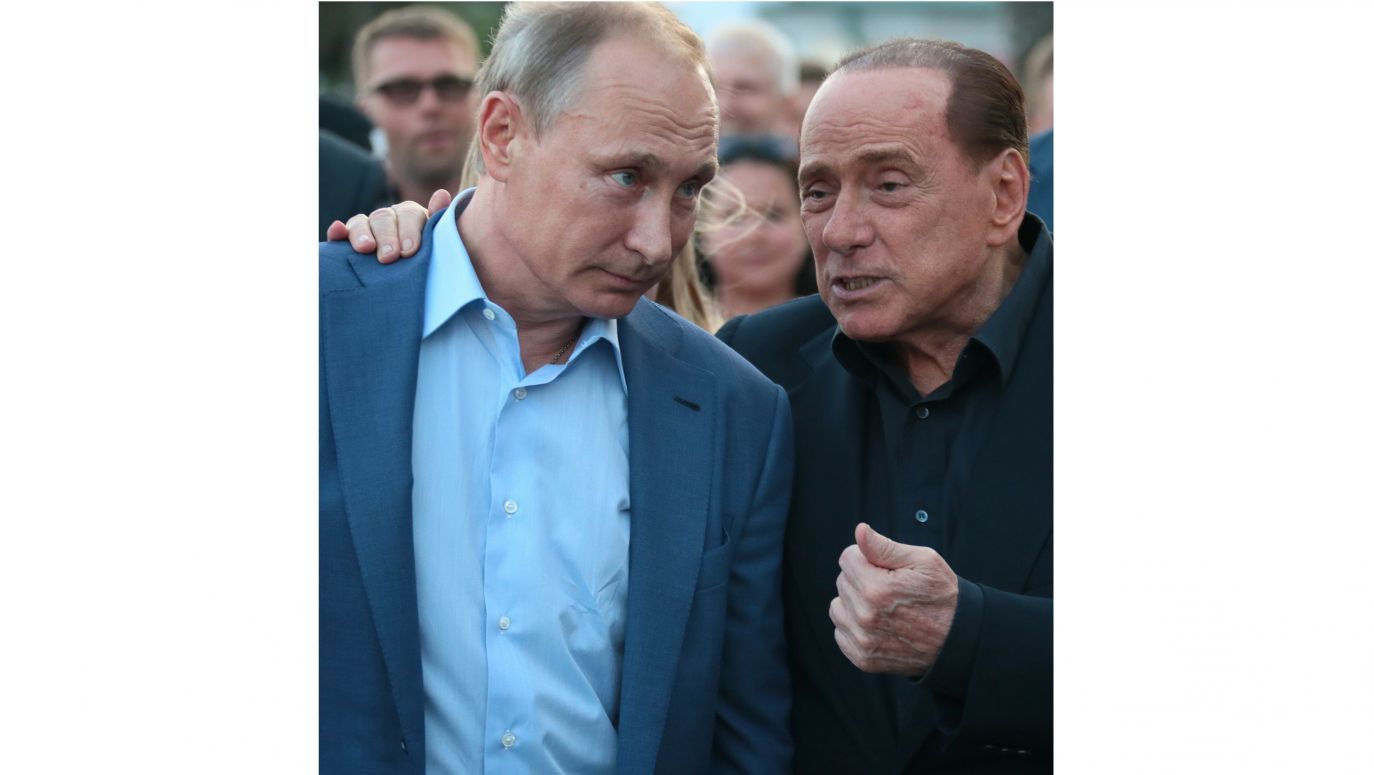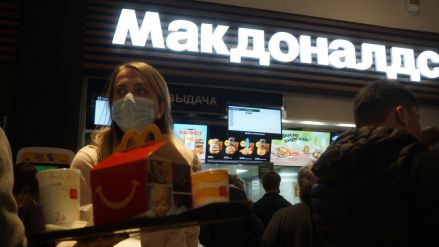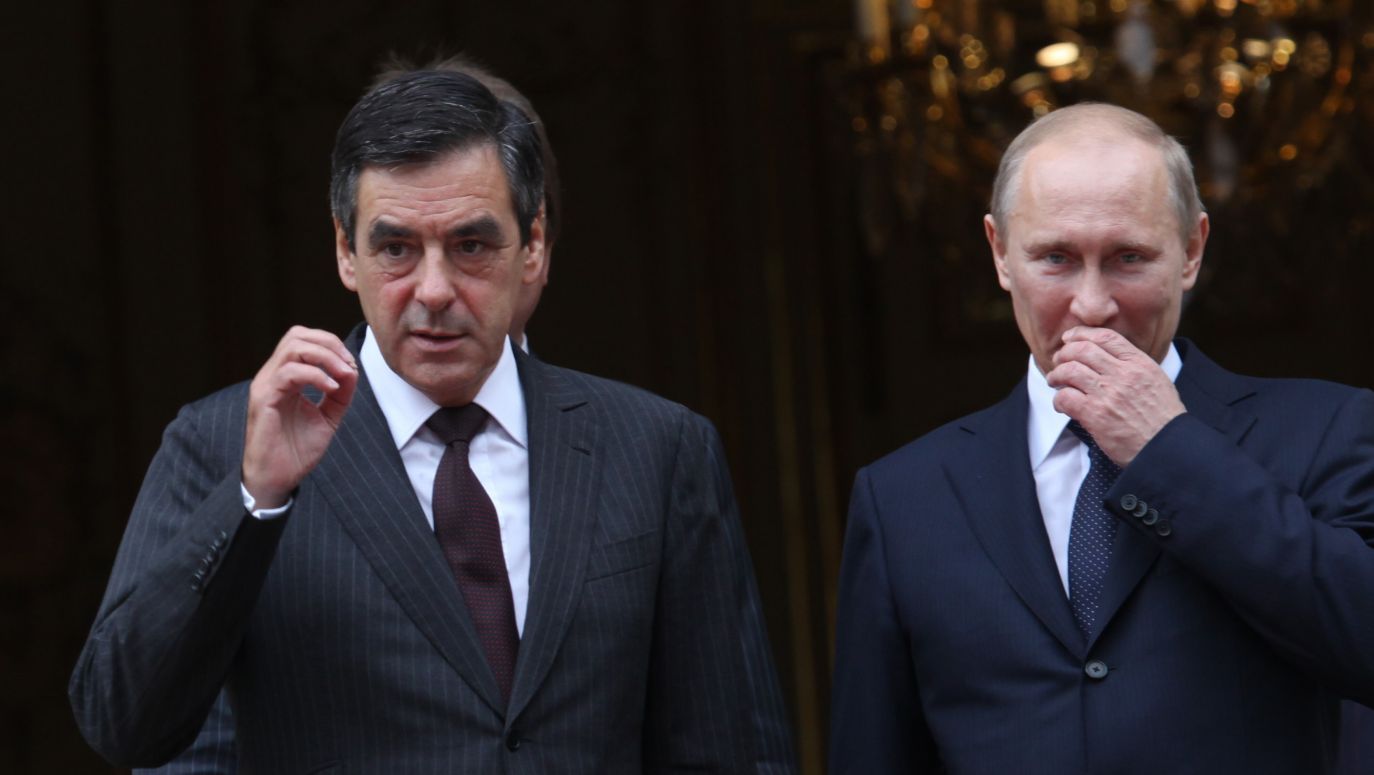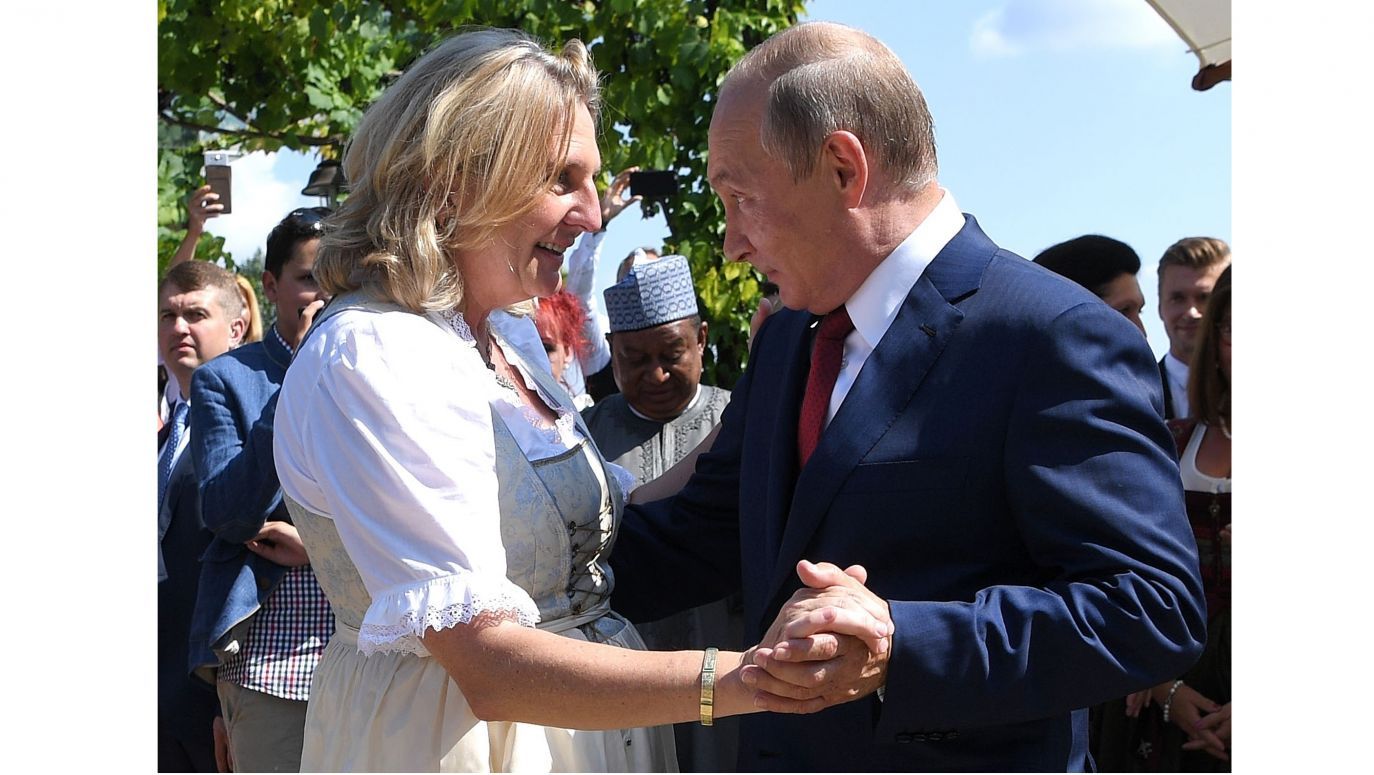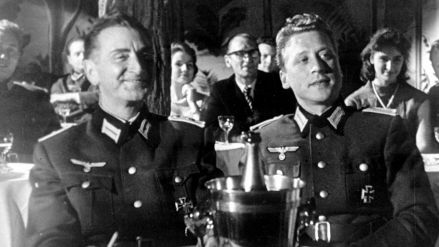A few years ago, a team of German journalists following the visit of Chancellor Gerhard Schröder to Moscow told me, with some distaste, about the way the chief of the German parliament was taken with Putin’s strength. On the way from the airport, the expressway had been closed to traffic carrying the German VIP Schröder der couldn’t hold his wonder at the byzantine style of his Russian host. ‘Just look,’ he was reported to say, on the empty roads on which the motorcycle escort sped on the way to the Kremlin, ‘what strength, what respect for authority. Could anything like this be possible in Germany?’ Obviously something like this was eminently possible, but the journalists were reluctant to shake their Chancellor out of his blissful reverie.
Schröder was so taken with the pomp surrounding Putin that he decided to join forces with the Kremlin. When in 2005 he lost power to Angela Merkel, he quickly took up the offer of chief shareholder at the North European Gas Pipeline Company (NEGPC), operating the Nord Stream gas pipeline directly linking Russia and Germany under the Baltic.
 WAR IN UKRAINE
WAR IN UKRAINE 
Naturally there is no possibility of this being an accident. Schröder, together with Italian premier Silvio Berlusconi, were great admirers of the concepts launched by Putin himself and his chief economic advisor Igor Shuvalov. Their idea was that Russian, with its gas and other raw materials exports, would take responsibility for European energy security. In exchange, Europe would just be thankful and display friendship and loyalty towards Russia. Russia and Europe would be linked by a gas alliance which would exclude America, NATO and other powers seen by Moscow as hostile. Hostile that is to the expansionist policy of Russia.
Nord Steam was the spine of this alliance. It was not only the start of Europe’s dependence on Russia, but more importantly, shortened the transit length through Ukraine, a country that Russian regarded as part of its own empire. After the 2004 Orange Revolution that brought Victor Yushchenko to power, Ukraine started to get too big for its boots in striving for independence. Energy pressure had to be brought to bear in order to lessen Ukrainian significance. Nord Stream was to circumvent Ukraine, allowing Russia to turn off the gas supplies to Kyiv.
